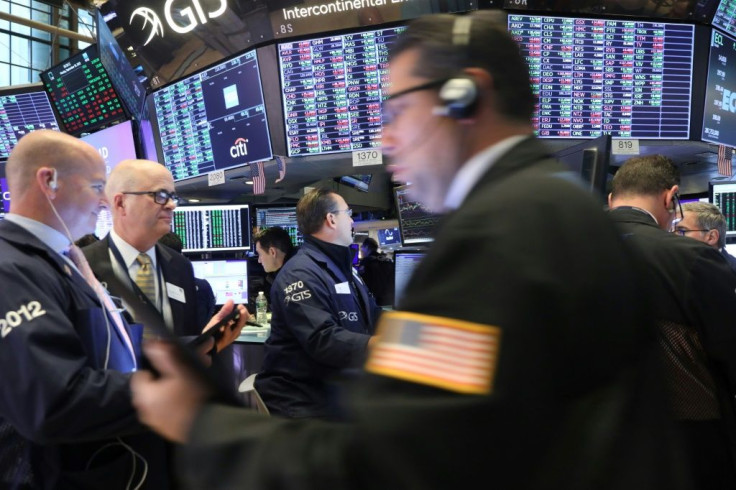Tuesday's Stock Market Close: US Equities Finish Lower As Traders Weigh Iranian Crisis Scenario

KEY POINTS
- U.S. factory orders fell 0.7% in November
- Crude oil futures dropped again
- U.S. trade deficit fell to its lowest level in three years in November
U.S. stocks closed lower Tuesday as traders appeared to be uncertain about the possibility of retaliation by Iran after last week’s U.S. drone strike in Baghdad which killed Iranian Gen. Qassem Soleimani.
The Dow Jones Industrial Average dropped 120.4 points to 28,583.34 while the S&P 500 shed 9.13 points to 3,237.15 and the Nasdaq Composite Index edged down 2.88 points to 9068.58.
Volume on the New York Stock Exchange totaled 2.83 billion shares with 1,299 issues advancing, 129 setting new highs, and 1,655 declining, with 11 setting new lows.
Active movers were led by NIO Inc. (NIO), General Electric (GE) and Advanced Micro Devices (AMD).
“The headlines seem to be moving more than the market right now,” said Keith Lerner, chief market strategist at SunTrust Private Wealth. “I think investors have been through this a few times now.” Lerner added that the market is in a “consolidation mode” after rallying in 2019.
“Markets are to some degree calming down from the trash talk that we’ve seen over the last couple of days,” said Matt Forester, chief investment officer at BNY Mellon’s Lockwood Advisors, citing the U.S.-Iran conflict. “The issue is whether there will be heightened conflict in the future. I don’t think markets know yet. This could easily flare back up again.”
Dryden Pence, chief investment officer at Pence Wealth Management, said markets are not overly concerned about the Iran crisis’ impact on oil prices since U.S. crude production has climbed in recent years.
“We are the biggest oil producer in the world and we’re able to make up what’s lost from Iran,” Pence said. “If you took Iran completely out of the oil market, that’s not a big deal. That’s why the market reaction has been so muted compared to what it would’ve been 10 years ago.”
Iran’s Fars news agency reported Iran is considering 13 possible retaliation "scenarios" against the U.S. Iran’s Supreme National Security Council Secretary Ali Shamkhani said: "Even if all agree on the weakest scenario, yet it will bring a historic nightmare for America.”
The Senate Finance Committee approved the new North American trade deal with Mexico and Canada on Tuesday. The panel will send the United States-Mexico-Canada agreement to the full Senate, which could pass the deal this month.
In economic data, the U.S. trade deficit fell to its lowest level in three years in November. U.S. exports climbed by $1.4 billion to $208.6 billion while imports skidded $2.5 billion to $251.7 billion. Year-to-date, the total deficit of goods and services fell $3.9 billion, or 0.7%, from the same period in 2018.
The Institute for Supply Management said its nonmanufacturing index rose to 55 in December from 53.9 in November.
U.S. factory orders fell 0.7% in November – the third such decline in the past four months, the Commerce Department said Tuesday.
Overnight in Asia, markets finished higher. China’s Shanghai Composite rose 0.69%, while Hong Kong’s Hang Seng gained 0.34%, and Japan’s Nikkei-225 surged 1.6%.
In Europe markets were mixed, with Britain’s FTSE-100 down 0.02%, France’s CAC-40 up 0.09% and Germany’s DAX gaining 0.62%.
Crude oil futures were down 1.01% at $62.63 per barrel and Brent crude dropped 0.13% at $68.18. Gold futures rose 0.31%.
The euro dropped 0.47% at $1.1143 while the pound sterling fell 0.39% at $1.3117.
The yield on the 10-year Treasury rose 0.88% to 1.827% while yield on the 30-year Treasury gained 1.05% to 2.305%.
© Copyright IBTimes 2024. All rights reserved.




















